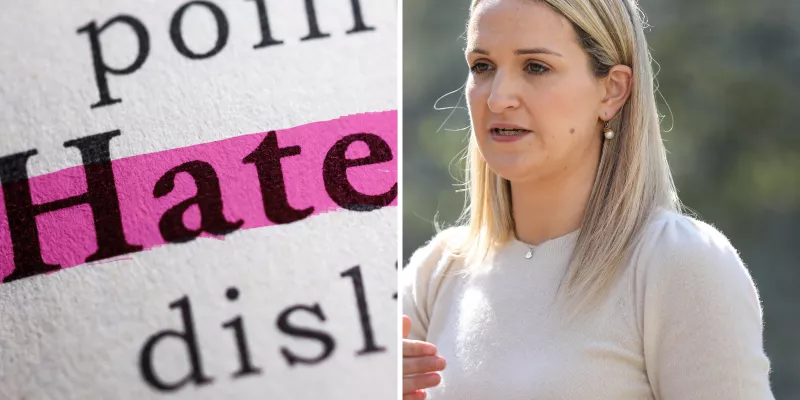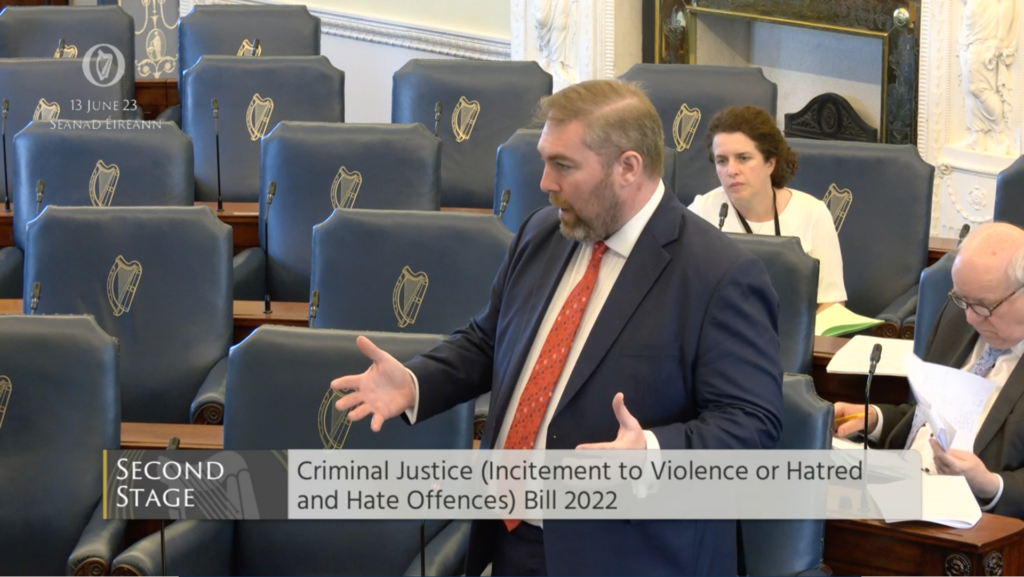
Section 9 of the Hate Speech Bill begins by stating,
“A person may be found guilty of an offence under section 7 or 8 irrespective of whether the communication of material or behaviour [of] the subject of the offence was successful in inciting another person to violence or hatred”
As such, speech or material that would be criminal needn’t even incite hate. Furthermore, given Section 10, material needn’t have even been communicated to be criminal; it need merely be possessed.
From Sections 9 & 10 it is clear that the scope for criminalisation in the Bill encompasses non-extreme cases. As such, the claim that the Hate Speech Bill will only criminalise “extreme” cases of hate speech is false.
This is one of several claims made by Fine Gael and their representatives since the introduction of the Bill that downplay the severity of its role.
The various Fine Gael representatives who have been passed the mantle of Sponsor of the Hate Speech Bill have adamently expressed that the Bill will only criminalise “extreme” cases, despite the Bill itself includes no reference to the same. Deputy James Browne, who received responsibility of the Bill from Minister Simon Harris, expressed the following while defending the Bill in a Dáil debate:
“Only the most severe types of speech that constitute incitement to violence or hatred would be criminalised under the Bill.
Discussion of protected characteristics, including criticism of matters relating to protected characteristics, is not a crime unless it crosses the line into incitement to violence or hatred.”
Since progressing from the Dáil to the Seanad, the Bill has come under heavy scrutiny, and an earlier sponsor of the Bill, Minister for Justice Helen McEntee, has retaken the mantle as its defender.
Speaking to Newstalk over the weekend, McEntee made sweepings claims about the Hate Speech Bill in an effort to placate the public,
“There will still be an ability for people to discuss and to criticise protected characteristics.”
“This is not about policing people’s thoughts or opinions and genuinely held beliefs”
These renewed claims about the Bill come on the heels of a contentious Seanad debate, in which support for the Bill in its current form was low. McEntee and Fine Gael senators have spent much of their speaking time asserting that the Bill in its current form is not extreme in nature, while admitting in the same speeches that the Bill does not define “hate” deliberately so as to boost conviction rates.

During the debate Senator Barry Ward expressed that freedom of speech is protected by Section 11 of the Bill.
Section 11 of the Bill, the “Protection of freedom of expression”:
For the purposes of this Part, any material or behaviour is not taken to incite violence or hatred against a person or a group of persons on account of their protected characteristics or any of those characteristics solely on the basis that that material or behaviour includes or involves discussion or criticism of matters relating to a protected characteristic.
Section 11:
material or behaviour is not taken to incite hatred solely on the basis that it includes discussion of protected characteristics
Effectively, this section states that speech should not be criminalised solely because it references sensitive topics. In other words, it states that it will not necessarily be illegal to speak about certain topics, which is a far cry from the rigorous protection for freedom of speech the section is made out to be by Fine Gael.
